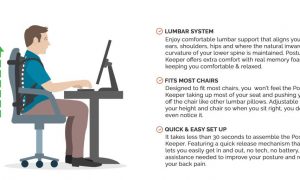The success of a trader depends to a large extent on one’s trading discipline.
70% of Forex traders are losing money, and 15% of them remain. The remaining 15% of forex traders are profitable because they have consistent discipline in order to lead to profitable trading.
Trading is a matter of getting the average law for your job.
There are no shortcuts to profitable trading. You must trade proven FX trading strategies repeatedly in order to generate full profits in a series of transactions.
The formula is very simple: a disciplined trade, you will succeed; without a disciplined trade, you will definitely fail. Many naive investors want to double their profits in days or even weeks. However, they did not realize that forex trading is like any ordinary investment, not a fast-profit plan.
Here are 10 golden rules to help me plan my trading journey, and I hope to guide you in your forex journey:
Have a reasonable funding account.
I believe most of us will start trading on demo accounts to test our strategy. Once we are confident in our profit strategy, we will turn to real accounts. Some people may try to trade with a small amount of real gold and silver to further test their strategies and emotions, but it is fine.
However, my explanation is why a well-funded account is important. If you compare a $ 100 fund account with a $ 5,000 fund account:
Let’s say we manage to get a 5% return in a month: Let’s say we manage to yield 5% return for one month:
$ 100 gives you $ 5.
$ 5,000 gives you $ 250.
If the two are compared, then $ 100 account holders will tend to trade more arrogantly, as the returns are not satisfactory in comparison. As a result, small account holders are likely to experience psychological pressure to take more transactions. This behavior leads to more risk taking and ultimately a higher chance of losing money. As a result, $ 100 account holders are more inclined to burn their own accounts.
However, anyone who earns $ 250 can feel how trading starts to improve their lifestyles without over-trading or taking excessive risks.
Don’t risk more than 5 % of your capital per transaction.
Having proper risk management means trading within the size of your account. The general rule of thumb is that the risk does not exceed 5% of your capital. Since we do not have 100% market control, we cannot win 100% of all transactions. Our goal is to make a net profit in our account at the end of the month.
If you do not limit the risk or keep the transaction size consistent, then you may lose all the profits in the past month in a single transaction, or worse, you may need to add margin to your overly leveraged single transaction. Although many trading strategies require different risk management, long-term traders can trade smaller lots. So it all depends on your trading style.
Don’t try to enter every market round.
Don’t try to grab the top and bottom! You may need to set up reverse trend trading near the top and bottom of the main market. You may want to enter the market in every trade you see, so as not to miss any possible profit. Trying to capture the top and bottom of the market is like trying to stop a bull or bear market and hoping it will reverse. Do you feel at risk? Of course!
The trader’s job is execution, not prediction.
We should never try to predict the direction of the market, but we as traders should wait for a signal from the market or imply the possibility of the next step. Our job is to take advantage of these moments to ride together.
Don’t analyze until you are paralyzed.
Many traders delay and miss profitable trades due to excessive analysis. Some people wait for the perfect price to enter (but the price has never been reached), while others wait for all indicators to go well before entering.
I’m not saying that we should not follow our trading plan. What I want to convey is that if you don’t execute a transaction, you will never know if you are right, and you just need to learn to manage it. If you are wrong, stop and reduce your losses.
Always stick to your trading plan.
If you want to sell or buy a specific currency, it is because you see transaction tips on your website or your friend tells you that a specific currency is overbought / oversold, and you have no vision. You should look for confluence that is consistent with our transactions. Once most or all of the criteria are met and there is technical evidence, it is to trade based on your own analysis.
Top-down analysis is often used and follows trends.
This method always looks at the highest time (usually a weekly chart), then every day, every hour and so on. Trends support and resistance observations in higher time frames are always stronger and more reliable. This helps us collect more for our trading probability. If you see a downtrend in the weekly and daily timeframes, and you plan to sell in the timeframes, your risk is relatively reduced, because even over a larger timeframe, the overall trend will make an impact.
There is a saying that “trends are your friends” and I find this to be very true. By following trends, you are limiting risk, but riding with power.
When you encounter a losing streak, don’t give up.
Always remember that trading is like any other investment in which we see profit for a long time. Consecutive goals are normal, but as long as your trading method is confirmed, the odds will turn to you in the future. A person may lose 60-70% of the transaction, but it is still profitable in the long run, which will be my next point.
Keeping your favor of profits.
To maintain profitability in your favor is to ensure that your transactions have an RRR (risk-reward ratio) that benefits you. If your stop loss point is 40 points, but your profit point is 120 points, then this is a 1: 3 risk-reward ratio, which allows you to lose 2 extra transactions before you break even.
I know a trader who only wins 35% of his trades but has a steady profit every month. This is because his RRR is always several times higher than the risk he takes.
Trade like a bricklayer!
Bricklayer’s job is to appear every day and repeat the tile laying in the same way. The same goes for transactions. If you keep checking your transactions every 3 minutes, and you can feel that your heartbeat is fast every time you trade, then you either risk too much money or still don’t master your emotions to trade reasonably. Consistency in trading methods and execution strategies becomes profitable.
























